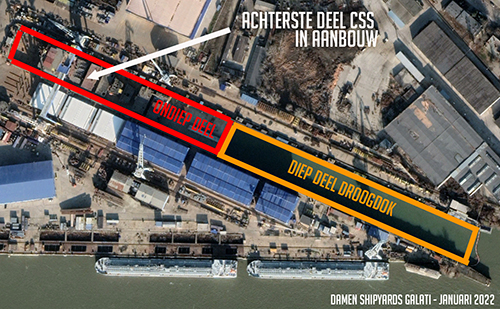American Battleground: Taking On The World's Wealthiest

Table of Contents
The Roots of Wealth Inequality in America
The vast chasm of wealth inequality in America isn't accidental; it's the result of centuries of interwoven historical and systemic factors. Industrialization, while fostering economic growth, also fueled the concentration of wealth in the hands of industrialists and capitalists. Subsequent periods of deregulation and tax policies favoring the wealthy exacerbated this trend, creating a system that consistently benefits those already at the top.
Systemic issues further entrench this inequality. Discriminatory lending practices, particularly redlining, have historically denied communities of color access to vital financial resources, perpetuating cycles of poverty. Unequal access to quality education and healthcare creates a significant barrier to upward mobility, reinforcing existing disparities. Moreover, the inheritance of wealth allows for the perpetuation of privilege across generations, creating a self-perpetuating cycle of advantage.
- Legacy of slavery: The lasting economic effects of slavery continue to fuel wealth disparity, denying generations of Black Americans the opportunity to accumulate wealth.
- Tax loopholes: Numerous tax loopholes and deductions disproportionately benefit the ultra-wealthy, allowing them to avoid paying their fair share of taxes.
- Globalization and automation: While beneficial in many ways, globalization and automation have contributed to job displacement in certain sectors, leaving many workers struggling to find comparable employment.
Strategies for Redistributing Wealth: Policy and Action
Addressing wealth inequality requires a multi-pronged approach involving significant policy changes and collective action. One crucial step is implementing a more progressive tax system. This could involve higher taxes on capital gains, inheritance taxes, and even a wealth tax on the ultra-rich, aiming to redistribute wealth more fairly.
Raising the minimum wage is another critical strategy. A higher minimum wage directly addresses income inequality by providing a living wage for low-income workers, boosting their purchasing power, and reducing economic insecurity.
Strengthening labor unions is essential to empowering workers and ensuring fair wages and benefits. Strong unions can negotiate collective bargaining agreements that significantly improve the economic prospects of working families.
- Examples of successful policies: Scandinavian countries provide models of progressive taxation and robust social safety nets that have fostered more equitable wealth distribution.
- Arguments for and against: While a wealth tax aims to directly address extreme wealth concentration, opponents argue about potential negative impacts on investment and economic growth.
- Unintended consequences: Policy changes, while well-intentioned, can have unintended consequences; therefore, careful analysis and implementation are crucial.
The Role of Social Movements and Activism
Social movements have played, and continue to play, a vital role in raising awareness and advocating for change. Occupy Wall Street, for instance, brought the issue of wealth inequality into the national conversation. Such movements highlight the power of collective action in challenging established power structures and demanding systemic change.
Philanthropy and charitable giving, while not a solution on their own, can play a supportive role in addressing some of the symptoms of inequality. However, it is crucial to acknowledge that philanthropy alone cannot solve a systemic issue as deeply entrenched as wealth inequality.
Grassroots movements are critical for fostering local change and advocating for policy changes at the community level. These movements can build momentum, influencing national-level discussions and legislation.
- Successful campaigns: The fight for women's suffrage and the Civil Rights Movement are examples of successful social movements that achieved significant and lasting change.
- Challenges faced: Social movements often face significant obstacles, including opposition from powerful interests, media manipulation, and internal divisions.
- Importance of media coverage: Effective media strategies are crucial for disseminating information and mobilizing public support for social justice initiatives.
The Global Perspective: International Comparisons and Cooperation
The problem of wealth inequality is not confined to the United States. Many developed and developing nations grapple with similar challenges, albeit with varying degrees of severity. Comparing wealth distribution across different countries highlights the range of possible outcomes and informs potential policy solutions.
International cooperation is crucial for tackling global wealth inequality. Tax havens and offshore accounts enable the wealthy to evade taxes on a global scale, undermining national efforts to redistribute wealth. International agreements and coordinated actions are necessary to address this issue effectively.
- Examples of equitable distribution: Countries with strong social safety nets and progressive tax systems often demonstrate more equitable wealth distribution.
- International initiatives: The UN's Sustainable Development Goals include targets related to reducing inequality, highlighting the global recognition of this issue.
- Challenges of global cooperation: Reaching international agreements on complex financial regulations requires overcoming significant political and economic obstacles.
Conclusion: Winning the American Battleground Against Extreme Wealth
The American Battleground against extreme wealth requires a sustained and multifaceted approach. Addressing the historical and systemic roots of inequality, implementing progressive policies, and supporting social movements are all essential elements in achieving a more equitable society. We must recognize that this is not just an American issue; it is a global one, demanding international cooperation to address the complex web of factors contributing to wealth concentration.
Join the fight against wealth inequality. Become part of the solution on this American Battleground. Take action to level the playing field by supporting organizations dedicated to economic justice, advocating for policy changes, and engaging in informed discussions about wealth redistribution. Together, we can work towards a future where the benefits of economic growth are shared more fairly, creating a more just and prosperous society for all.

Featured Posts
-
 Verret Completes Delivery Of Mv Callaway Parker To Ptc
Apr 26, 2025
Verret Completes Delivery Of Mv Callaway Parker To Ptc
Apr 26, 2025 -
 Nepo Baby Debate Amanda Seyfrieds Raw Response
Apr 26, 2025
Nepo Baby Debate Amanda Seyfrieds Raw Response
Apr 26, 2025 -
 Royal Netherlands Navy Bolsters Marine Security With Fugro Damen Partnership
Apr 26, 2025
Royal Netherlands Navy Bolsters Marine Security With Fugro Damen Partnership
Apr 26, 2025 -
 Mission Impossible Dead Reckoning Part Twos Super Bowl Teaser A Closer Look
Apr 26, 2025
Mission Impossible Dead Reckoning Part Twos Super Bowl Teaser A Closer Look
Apr 26, 2025 -
 Blue Origins Launch Scrubbed Details On Vehicle Subsystem Malfunction
Apr 26, 2025
Blue Origins Launch Scrubbed Details On Vehicle Subsystem Malfunction
Apr 26, 2025
Latest Posts
-
 German Politics Crumbachs Resignation And Its Implications For The Spd
Apr 27, 2025
German Politics Crumbachs Resignation And Its Implications For The Spd
Apr 27, 2025 -
 Bsw Leader Crumbachs Resignation Impact On The Spd Coalition
Apr 27, 2025
Bsw Leader Crumbachs Resignation Impact On The Spd Coalition
Apr 27, 2025 -
 Concerns Raised Over Hhss Appointment Of Anti Vaccine Activist To Study Debunked Autism Vaccine Theories
Apr 27, 2025
Concerns Raised Over Hhss Appointment Of Anti Vaccine Activist To Study Debunked Autism Vaccine Theories
Apr 27, 2025 -
 Hhs Under Fire For Selecting Anti Vaccine Advocate To Investigate Autism Vaccine Link
Apr 27, 2025
Hhs Under Fire For Selecting Anti Vaccine Advocate To Investigate Autism Vaccine Link
Apr 27, 2025 -
 Hhss Controversial Choice Anti Vaccine Advocate To Examine Debunked Autism Vaccine Claims
Apr 27, 2025
Hhss Controversial Choice Anti Vaccine Advocate To Examine Debunked Autism Vaccine Claims
Apr 27, 2025
